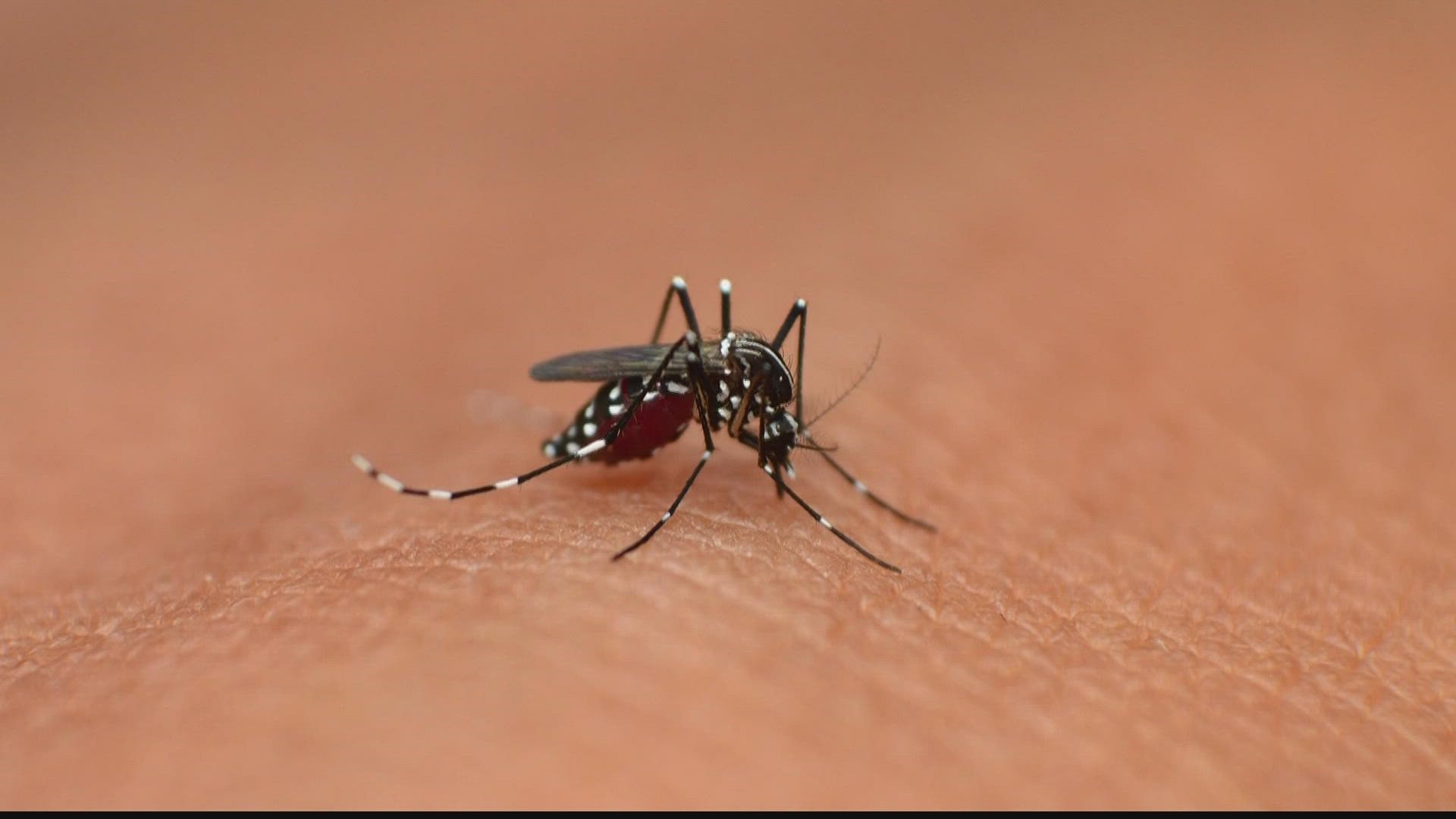DEKALB COUNTY, Ga. — West Nile virus is in DeKalb County, public health leaders announced Tuesday.
County board of health officials said four of its mosquito surveillance traps caught insects that tested positive for carrying the virus. The traps are in east Atlanta, unincorporated DeKalb County, Chamblee and Doraville.
Below are the corresponding zip codes:
- 30316
- 30341
- 30345
- 30360
So far, there have been no human cases of West Nile virus confirmed in DeKalb County, according to health officials.
Last year in the county there were 13 virus-positive mosquito collections from 11 sites. County health officials said no people were infected then either. However, they advise people still to be aware and take precautions.
Cases of the illness occur during mosquito season, which starts in the summer and continues through fall, according to the CDC. DeKalb County officials often place traps to collect and test mosquitos during the summer months.
"Although the traps are in areas with little foot traffic, someone coming upon one can easily identify it by its red and white sign," a spokesperson with the board of health said.
The agency explained that the West Nile virus is the main mosquito-borne illness of concern in Atlanta.
In addition to trapping and testing the insects, seasonal technicians also work with neighbors to eliminate them which includes placing larvicide in areas with standing water.
"This keeps young mosquitos from becoming flying, biting adults. Larvicides do not harm people, pets, or the environment," public health leaders explained.
For more information about West Nile virus in DeKalb County visit the department's dedicated website.
How to protect yourself
County environmental health leaders said now is the time to turn over flowerpots, cover wading pools or throw out water stored in buckets and other containers that may have been filled during rainfall.
Pet owners should make sure to refill bowls with fresh water for their animals daily, health leaders added.
Other measures include removing debris from one's home and repairing damaged window screens. Unclogging rain gutters could also assist as well as trimming large weeds, grass and vines.
Wearing clothes that cover one's neck, legs and arms can also protect from mosquito bites. Of course, summer is an optimal time to wear mosquito repellent.

